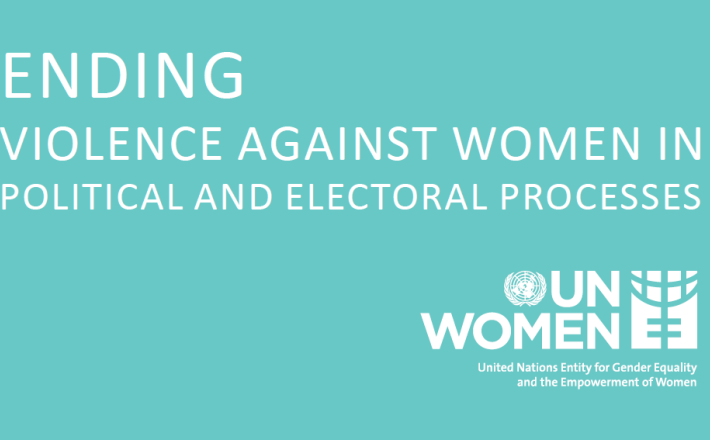UN Women Report on ending violence against women in political and electoral processes in Pakistan
Pakistani women face unique and frequently more severe challenges to their political participation than men do. In particular, the violence faced by Pakistani female political candidates, and voters is a serious barrier to their full participation in civic life. These challenges are especially difficult to address because they often go unrecorded and unreported. Security actors and public bodies such as Electoral Management Bodies (EMBs) may struggle to respond to protect and promote women’s public participation because of the absence of documentation and understanding of the nature and magnitude of the problem, as well as lack of specific programming responses that may be appropriate to the context.
The present study seeks to fill this knowledge gap by documenting the distinct challenges to women’s political participation in Pakistan, specifically examining the issue of violence against women in politics (VAWP) during electoral processes. The aim of the study is to produce an evidence base and identify the types of VAWP in Pakistan to encourage appropriate policy measures through legislative reforms by Election Commission of Pakistan (ECP), and other key stakeholders. Specifically, the aim of this baseline study is to identify the forms of VAWP and to document its prevalence and magnitude in the country.
Based on this analysis, the study offers a number of policy options to address the issue of VAWP as well as providing recommendations to develop effective measures for eliminating VAWP in consultation with Civil Society Organizations (CSOs), media, political parties, women candidates and voters, the National Database and Registration Authority (NADRA) and ECP. The study concludes with recommendations for the development of mechanisms to monitor incidents of VAWP ahead of elections.
Click here to read the report.

Pakistani women face unique and frequently more severe challenges to their political participation than men do. In particular, the violence faced by Pakistani female political candidates, and voters is a serious barrier to their full participation in civic life. These challenges are especially difficult to address because they often go unrecorded and unreported. Security actors and public bodies such as Electoral Management Bodies (EMBs) may struggle to respond to protect and promote women’s public participation because of the absence of documentation and understanding of the nature and magnitude of the problem, as well as lack of specific programming responses that may be appropriate to the context.
The present study seeks to fill this knowledge gap by documenting the distinct challenges to women’s political participation in Pakistan, specifically examining the issue of violence against women in politics (VAWP) during electoral processes. The aim of the study is to produce an evidence base and identify the types of VAWP in Pakistan to encourage appropriate policy measures through legislative reforms by Election Commission of Pakistan (ECP), and other key stakeholders. Specifically, the aim of this baseline study is to identify the forms of VAWP and to document its prevalence and magnitude in the country.
Based on this analysis, the study offers a number of policy options to address the issue of VAWP as well as providing recommendations to develop effective measures for eliminating VAWP in consultation with Civil Society Organizations (CSOs), media, political parties, women candidates and voters, the National Database and Registration Authority (NADRA) and ECP. The study concludes with recommendations for the development of mechanisms to monitor incidents of VAWP ahead of elections.
Click here to read the report.